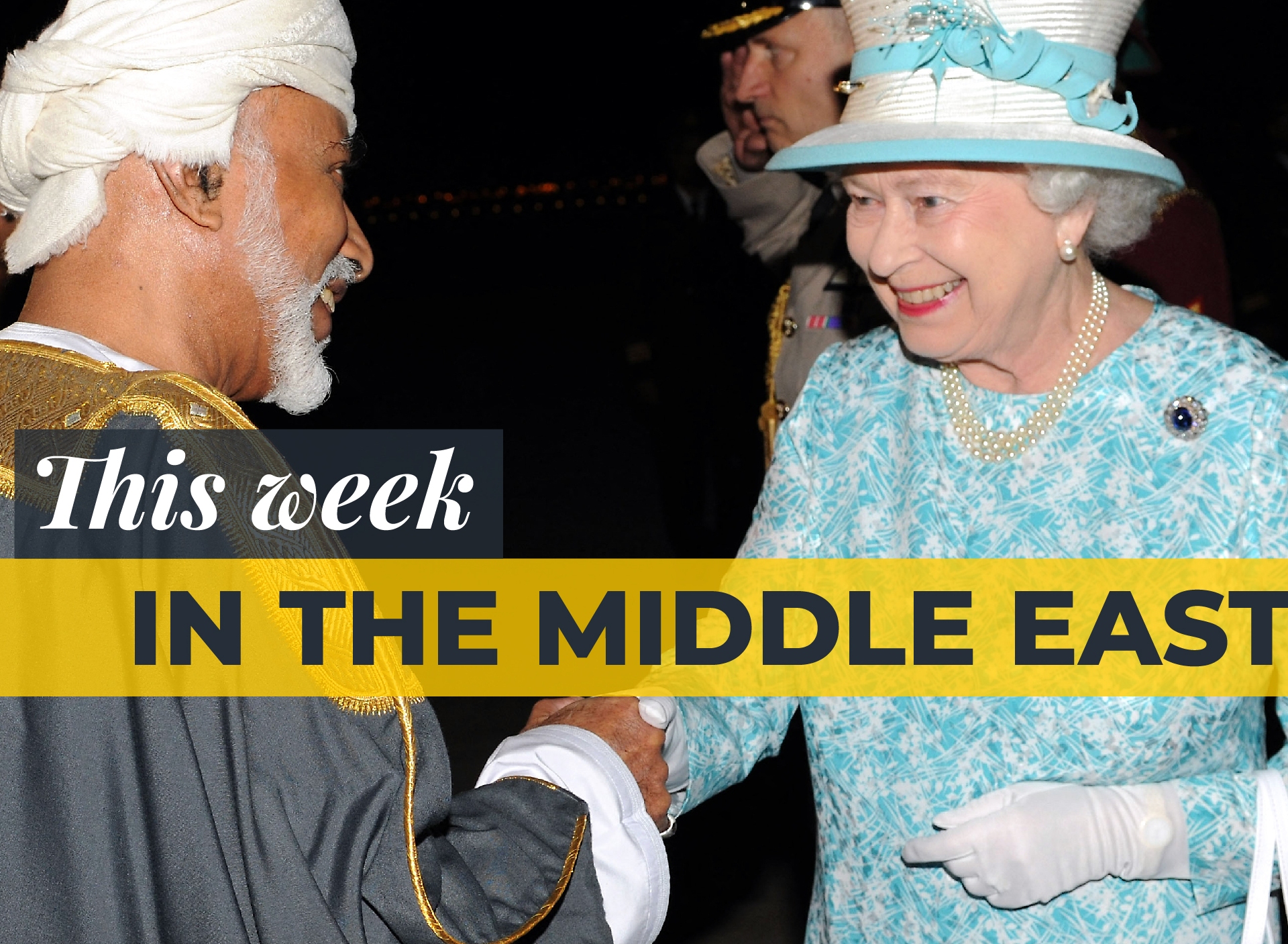
This week we take a look at Queen Elizabeth and the Middle East, intensified Israeli raids in the occupied West Bank, and the refugees and migrants still struggling to make it to Europe. Here’s this week’s round-up, written by Abubakr Al-Shamahi, Al Jazeera Digital’s Middle East and North Africa editor.
Here’s a question for you: What was the British empire’s only colony in the Arab world?
The answer: Aden, a port city in the southwest of the Arabian Peninsula, now part of Yemen (places like Palestine and Iraq were technically mandates, while Qatar and the UAE were protectorates).
With that in mind, and with the recent death of Queen Elizabeth II, I thought it would be a good time to look at her legacy in Yemen, beginning with her visit as a young queen in 1954, a Marxist uprising and the Indian influence that the British helped foster.
Queen Elizabeth had ties to several Arab royal families, a relationship that usually limited itself to things like horse racing. Her son, King Charles III, has been more vocal on the Middle East – and controversial. Here are some of his views on the region, including Palestine, his opposition to the Iraq war and comments he’s made about Islam.
[WATCH: A Yemeni man performed a pilgrimage to Mecca on behalf of Queen Elizabeth – and was arrested]
Raids by the Israeli army in the occupied West Bank show no sign of stopping. On September 7, Israeli forces shot and killed a young Palestinian man during a military raid in Tubas. In the last week, three other Palestinians have also been killed at military checkpoints, as well as one Israeli soldier. Zena Al Tahhan, our correspondent in Palestine, reports that the cities of Jenin and Nablus have been the focus of these raids, as Israel tries to counter the emergence of newly armed Palestinian groups that are more inclined to shoot bullets – than to throw rocks.
Refugees and migrants desperate to reach Europe are still risking their lives making the journey. At least 12 people died in two separate attempts to cross the Mediterranean. On September 12, six Syrians – including two infants and a child – were found dead after the boat they were on arrived in Sicily, while on September 14, another six refugees drowned – one woman, three children and two babies – after their boat sank off the coast of Turkey.
Not long ago, it seemed as though Iran and the United States were on the verge of an agreement to restore their nuclear non-proliferation deal. Now, it’s clear that a deal won’t be coming any time soon. The main stumbling blocks, as explained by our correspondent in Tehran, Maziar Motamedi, are an investigation into nuclear material found in Iran, and Israeli and domestic opposition. Don’t expect anything until at least after the US midterm elections.
[RE: Albania blames Iran for second cyberattack since July]
It’s not all bad news
This university in Qatar is training commentators so that people who are visually impaired will be able to more fully enjoy the World Cup. The announcers will be shown how to provide “ultra-detailed audio descriptive commentary”. Fans with impaired vision will be able to download an app and “be part of the crowd cheering and singing”.
The end of Mashrou’ Leila
It was news that fans of the hugely popular Lebanese rock group were expecting, but that didn’t make it any easier to accept: Mashrou’ Leila is no more. Lead singer Hamed Sinno confirmed the band’s break-up on Sunday. Their music isn’t going anywhere, though, so here are five of their best songs (IMHO).
In brief
A baby was rescued from under the rubble but at least six other people have been killed after a building collapsed in Amman, Jordan. – Egyptian President Abdel Fattah el-Sisi met Qatari Emir Sheikh Tamim bin Hamad Al Thani in his first visit to Doha since a 2017 regional crisis – The UN calls a cholera outbreak in Syria a “serious threat” – And Turkish popstar Gulsen has been released from house arrest.
[GALLERY: The ruins of Iraq’s Hatra used to be controlled by ISIL (ISIS) – now tourists are back]
An unapologetic Palestinian on Netflix
Mo, The latest original comedy series from Netflix, tells the hilarious, and sometimes poignant, story of an undocumented Palestinian with an addiction to hummus and olive oil (and drinking a syrupy codeine-laced concoction called Lean) as he navigates life in the US state of Texas.
“For decades, the Palestinian identity has been systematically erased from the popular culture consumed by much of the world,” writes filmmaker Ahmed Twaij in this opinion piece. “Shows like Mo provide an opportunity to reclaim what has been taken.”
Rescuers in Jordan’s capital Amman have pulled a four-month-old baby girl from the rubble of a collapsed building, 30 hours after it came down. State media said at least nine people were killed and several others remained missing. pic.twitter.com/I57ukaDXKL — Al Jazeera English (@AJEnglish) September 15, 2022
Quote of the Week
“Refugees are not garbage, they’re not the refuse of a country, the Lebanese people are suffering and this is the net effect of it,” says Lebanese-Australian aid worker Tom Zreika, whose team has been investigating the sinking of a boat in April that killed around 40 people.
Family members of the victims accuse the Lebanese navy of deliberately ramming the boat. Zreika’s team sent a submarine to take pictures of the sunken wreck – including heartbreaking images of victims’ bodies trapped inside the boat. According to the navy, the boat appears intact – proof, it says, that it is not responsible for the disaster.







